I’m a fan of Sir Anthony Hopkins. (Who isn’t?)
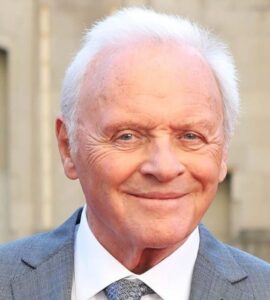
This short clip of him, at 85, playing a beautiful little piano composition, his own, made me think, “What a well-lived life!”
Click here.
I’m a fan of Sir Anthony Hopkins. (Who isn’t?)

This short clip of him, at 85, playing a beautiful little piano composition, his own, made me think, “What a well-lived life!”
Click here.
How to Write a Book About Your Family History

For the past few years, my friend (and coeval) HB has been thinking about writing down his family’s story.
His parents and many of his uncles and aunts were holocaust survivors. He began collecting information and photos and clippings about them several decades ago. I’ve seen a smattering of his collection. It’s impressive. Daunting. Inspiring.
Several years after he began his research, I started digging into my (and K’s) family history. My sister D did much of the initial research, interviewing some of the relatives. I hired a young writer to follow up on D’s work. I even traveled to Ireland to meet some of my cousins on my mother’s side.
Worth noting if you do this: Your European (or whatever) family has probably NOT been breathlessly waiting for their American cousins to visit them all these years. You may get the chilly reception I got from my second cousin (once removed) when I tracked him down.
Act One, Scene One: Hero is knocking on a thick wooden door, the front entrance of a thatched-roof house on a hill overlooking the bogs.
Hero: Hi! Are you John Curran?
John Curran (eyebrows furrowed): Yes, that would be me.
Hero (huge smile): Fantastic! I’m Mark Ford, your long-lost cousin from America!
John Curran: So?
The Ford/ Fitzgerald family history is rich with names, birth dates, marriage certificates, and death notices of hundreds of descendants. There are some details as to locations and occupations. Even some wonderful stories. But those stories don’t compare to what HB has compiled. So I wasn’t surprised to get an email from him recently, telling me that he was determined to put all that he’s gathered into a book of some kind.
“I’ve decided I should go ahead write it down,” he said. “But I have this tremendous blockage of even starting to put it into words. My wife tells me I shouldn’t try to think it through before I begin. She says I should just start writing one story or profile and go from there. But I lack the confidence to do justice to the information. I also know that it will be lost if I do not. Any suggestions?”
I told him that I thought his wife’s advice was very good. “Since you are not an experienced writer and/ or biographer,” I said, “it’s best NOT to try to plan it all out in the beginning, however tempting that might feel. That’s just a subconscious tactic for putting it off until it’s too late. It’s better to do exactly what she says. Start with one person or one story, write it down, and then move on from there. However, if I were in your shoes (no writing experience and still busy with my life), I’d begin by hiring a genealogist to help put together the family tree. It’s not difficult if you have enough information, which I think you do. And when that’s complete, I would hire a professional biographer/ ghostwriter and work with him or her to turn that tree into a family history.”
For anyone reading this who would like to do some genealogical research on their own, here’s some information to get you started:
The difference between genealogy and family history
Genealogy is the study of family ancestors with pertinent data such as birth, marriage, and death dates. Family history is an in-depth study of a family lineage with greater emphasize on and clarification of each ancestor’s life story.
The basic process
Start by going back to your grandparents (four individuals), your great grandparents (eight individuals), and then your great, great grandparents (16 individuals). Going back to your great, great grandparents would place their birth lineage to the 1820 to1830 timeframe. Go back another hundred years to the 1730s and you have your great-great-great-great great grandparents. And they alone number 128 people. Which means there are many individuals to track and locate information about to create a full family history.
The role of DNA testing
From the NYT: “In America, the question of ‘Where am I from?’ usually means, ‘Where did my family live before they arrived/ were forcibly shipped to America?’ Recently, there’s been a push to answer that question through DNA tests, which claim they can tell us exactly what percentage Norwegian or Nigerian we are. But there are catches. The tests can compromise our privacy, with the possibility that our genetic information could be sold to third parties without our knowledge. And they don’t truly reveal our origins so much as reveal who has similar DNA right now. Also, and perhaps more important: Culture does not come from DNA. It comes from lived experience, traditions, and stories passed down from actual people who shape our perceptions of the world.” To read the full NYT article, click here.
New resources, services, and options are added regularly on popular genealogy sites, including FamilySearch.org, a very large and very helpful free site. Also check out Ancestry.com and Archives.com.
Patrice O’Neal: Elephant in the Room
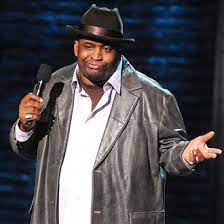
Last week, on a walk to give my new fake knee a workout, he began quoting what seemed to be from a movie. He had me laughing.
“What movie is that from?” I asked.
“It’s from Elephant in the Room,” he said. “And it’s not a movie. It’s a stand-up comedy routine by Patrice O’Neal.”
“Who’s Patrice O’Neal?” I asked.
“How old are you?” he said.
That night, he sent me this link to the performance.
It was very funny. As you’ll see if you watch it, O’Neal was one of those comedians, like George Carlin and Richard Pryor (whom he admired) that can get into difficult, potentially divisive material in a way that is unifying and affirming.
Elephant in the Room was one of O’Neal’s last performances. He died of a stroke in 2012, less than a year later.
Freddie deBoer’s Latest Book
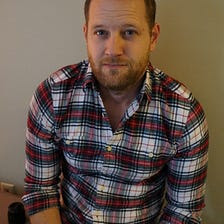
Freddie DeBoer
The Washington Post does not pretend to be impartial – neither in its reportage, its editorial, or even its book reviews. So you’d you think it would write a nice, left-leaning piece on Freddie deBoer’s latest book: How Elites Ate the Social Justice Movement. But no. WAPO’s reviewer pretty much trashed it because of deBoer’s fair-minded and well-defended criticism of the worst aspects of the BLM rioting and looting.
Check it out here. And then order deBoer’s book!
Subway Surfing

Click here to read a well-written piece by an evidently smart young writer (published by The Free Press).
It describes a new sort of urban “tribe” of even younger men that surf on the top of city trains and attempts to defend their thoughtless violence by the old trope, “If you lived without guardrails, like these kids do, you’d be reckless and destructive, too.”
Do you buy into it? Let me know.
Feb. 24, 2015 Letter From James “Whitey” Bulgar to 17-Year-Old Brittany Tainsh
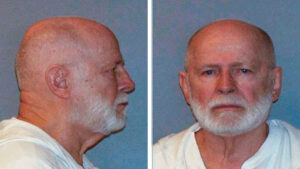
The notorious Boston gangster who eluded capture for nearly two decades before being captured in 2011
“My life was wasted and spent foolishly, brought shame and suffering on my parents and siblings and will end soon – Advice is a cheap commodity, some seek it from me about crime – I know only one thing for sure – If you want to make crime pay – ‘Go to Law School.’” (Source: Letters of Note, Prison Letters)
Quick Bites: Love It or Loathe It, Fireball Over Denver, Only in Africa, the So-Called “Cheerios Effect,” and a World Capitals Quiz
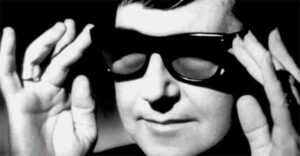
Two Great Voices on One Great Song
KD Lang joins Roy Orbison in singing one of his best-loved songs: Crying. Click here.
My Three Favorite Pleasures

There was a time, when I was young, that I thought the only sensible objective in life should be to get the best ratio possible between pleasure and pain. Put more simply: to avoid everything that was difficult or even uncomfortable, while spending the maximum amount of time having “fun.”
But when boys become men, as St. Paul famously said, they must put away childish things. In my case, it was the pursuit of hedonism.
Well, it wasn’t exactly like that. Over many years, I gradually recognized that those things I thought would give me maximum pleasure (more money, more TV time, newer toys, nicer things) had surprisingly short shelf lives. And as I grew older and fell into doing – under mandates – those things that, as a child, I was trying to avoid (work and school, mostly), I discovered activities that gave me better and longer lasting pleasure.
In my twenties and thirties, I indulged in the working and learning experiences I enjoyed, while also seeking the more standard pleasures. But I noticed that if I spent too much time indulging in those (mostly social) pleasures, the good I got from them lessened – i.e., there was a point of diminishing returns.
Sometime in my forties, I began to become aware of the many ironies of life, including the fact that it is almost impossible to have more pleasure by trying to have more pleasure. The more you chase after it, the farther it moves ahead of you.
I’m not making an argument for asceticism. I still believe that it makes good sense to strive for a life that is more pleasurable than painful. I’m merely saying that once I realized that (a) I couldn’t have more pleasure by trying to have more pleasure, and (b) lots of things that I used to think of as difficult and/or painful could be very pleasurable indeed, I was able to look at this ratio from the perspective of my actual experience, rather than the images of pleasure manufactured to sell things.
I’ve been thinking about this for quite a while. At least 20 years. I’ve written about it, too, in books and essays, in which I sometimes tried to categorize the types of pleasure in terms of quality, durability, and so on. And that’s all been helpful – to me, if not to my readers.
Then, about a year ago, I was looking over some of those books and essays, trying to find a common thread. And I think I did. For me, there have always been three – and only three – good and worthy pleasures. They are:
* Working towards an objective I value.
* Learning about a subject I think is important.
* Sharing my knowledge and the fruits of my labor.
That’s it. Three. Working. Learning. And sharing.
Working
“We were created for meaningful work, and one of life’s greatest pleasures is the satisfaction of a job well done.” – John C. Maxwell
I discovered the pleasure I get from working before I understood that what I was doing was working. As a boy and through my teenage years, I enjoyed the normal boyish pastimes like playing sandlot football and sneaking into movie theaters. But my greatest pleasure came from working alone in the basement of my house, building miniature towns, choreographing war scenes with little plastic soldiers, and building real structures out of plywood to serve as forts and hideaways or as hospitals for injured birds and frogs and insects.
I also loved to start clubs. As an 11-year-old, I created the He-Man-Women-Haters club. In high school, I was president of a group of troublemakers in the guise of a fraternity.
Looking back on those activities, and comparing them to the things I did “for fun,” I see now that I preferred the building and organizing because they mattered to me in a way that playing sandlot football never could.
That’s still true today. I tried to retire three times in the last 30 years, and went back to work each time because I missed the deep and lasting pleasure of working on the many things I used to do that I truly cared about.
Working on things that I value. That was and still is key. (That’s why I write this blog.)
Learning
“The greatest pleasure is obtained by improving.” – Ben Hogan
I enjoyed school through fourth grade, but not again until I was in college. And even then, I didn’t always enjoy my classes. In retrospect, I can see that my favorites were those that I felt would somehow make me a more valuable person. And by valuable, I don’t mean financially valuable – knowing things or having skills that would earn me big money sometime in the future. Literature, anthropology, history, etc. were the kind of subjects that were valued in the house I grew up in. I think that’s why I got so much pleasure out of studying them.
I recognize how helpful it would be if I knew more about technical things. Like how to reset my watch. Or how to increase the bandwidth (or whatever it is) of my WiFi when I’m on important Zoom calls. And I’ve tried. I really have. But I just can’t persuade the judge in the corner of my brain that knowing these sorts of things will make me a more valuable person.
Sharing
“A writer’s greatest pleasure is revealing to people things they knew but did not know they knew. Or did not realize everyone else knew, too.” – Andy Rooney
I was talking to a friend last week about this little theory. He understood the pleasure I get from working on and learning about things I value. But he questioned me about the sharing. Sharing, he felt, is really just an obligation. A responsibility. Something you do out of a sense of duty, not as a potential source of pleasure.
“All I can tell you,” I said, “is that sharing what I have, whether it’s my house, my toys, or my money, is probably the truest pleasure I get. And it can be expressed in so many ways. In fact, when I first sat down to write this essay, I had a fourth activity on my list of good and worthy pleasures: teaching. But after thinking about it for five minutes, I realized that the reason I like teaching is because it is a form of sharing.”
I don’t know how to categorize what I’ve just written. Is it a manifesto? A sermon?
It doesn’t feel like that to me. I swear. It feels like sharing!
A Town That Decided to Pay Out Reparations
Louis Weathers, 88, at the home he’s owned for more than 60 years in Evanston, IL
There are so many flaws in the argument in favor of federal and state governments giving “reparations” to African Americans. I thought this essay by Adam Popescu of The Free Press provided another helpful perspective.
COVID Cases Are Up…Not to Worry!
“Hospitalizations climbed 24% last week,” notes John Stossel in an article titled ‘Control Versus Choice’ in Taki’s Magazine. “But the media make everything seem scarier than it is. The headline ‘Up 24%!’ comes after dramatic lows. Hospitalizations are still less than half what they were when President Joe Biden said, ‘The pandemic is over.’”
Read more from John Stossel on contagion politics here.
Freddie deBoer on What Barbie Tells Us About Contemporary Thinking

Click here.